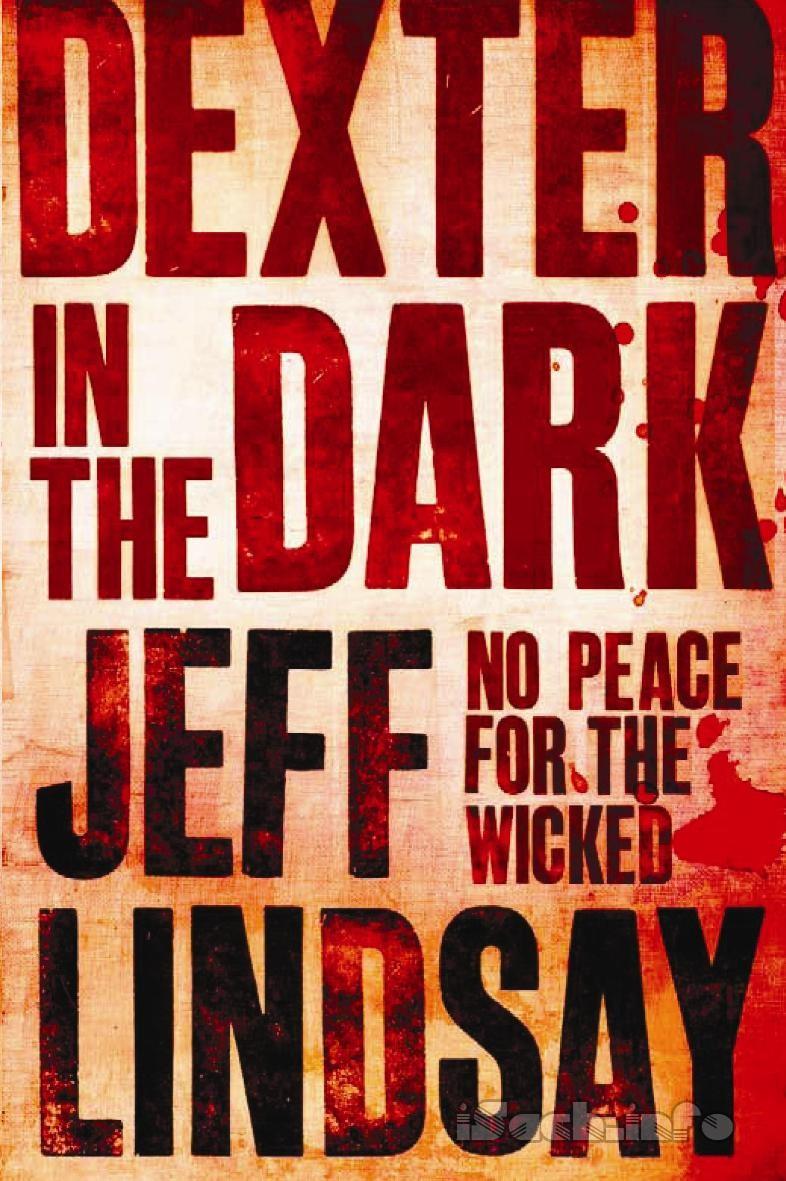Chapter 16
T
HEY FOLLOWED.The museum was crowded with groups of curious citizens in search of knowledge—or a bathroom, apparently. Most of them were between the ages of two and ten, and there seemed to be about one adult for every seven children. They moved like a great colorful flock of parrots, swooping back and forth through the exhibits with a loud cawing sound that, in spite of the fact that it was in at least three languages, all sounded the same. The international language of children.
Cody and Astor seemed slightly intimidated by the crowd and stayed close to me. It was a pleasant contrast to the spirit of Dexterless adventure that seemed to rule them the rest of the time, and I tried to take advantage of it by steering them immediately to the piranha exhibit.
“What do they look like?” I asked them.
“Very bad,” Cody said softly, staring unblinking at the many teeth the fish displayed.
“Those are piranha,” Astor said. “They can eat a whole cow.”
“If you were swimming and you saw piranha, what would you do?” I asked them.
“Kill them,” said Cody.
“There’s too many,” Astor said. “You should run away from them, and not go anywhere near.”
“So anytime you see these wicked-looking fish you will either try to kill them or run away from them?” I said. They both nodded. “If the fish were really smart, like people, what would they do?”
“Wear a disguise,” Astor giggled.
“That’s right,” I said, and even Cody smiled. “What kind of disguise would you recommend? A wig and a beard?”
“Dex-ter,” Astor said. “They’re fish. Fish don’t wear beards.”
“Oh,” I said. “So they would still want to look like fish?”
“Of course,” she said, as if I was too stupid to understand big words.
“What kind of fish?” I said. “Great big ones? Like sharks?”
“Normal,” Cody said. His sister looked at him for a moment, and then nodded.
“Whatever there’s lots of in the area,” she said. “Something that won’t scare away what they want to eat.”
“Uh-huh,” I said.
They both looked at the fish in silence for a moment. It was Cody who first got it. He frowned and looked at me. I smiled encouragingly. He whispered something to Astor, who looked startled. She opened her mouth to say something, and then stopped.
“Oh,” she said.
“Yes,” I said. “Oh.”
She looked at Cody, who looked up again from the piranha. Again, they didn’t say anything aloud, but there was an entire conversation. I let it run its course, until they looked up at me. “What can we learn from piranha?” I said.
“Don’t look ferocious,” Cody said.
“Look like something normal,” Astor said grudgingly. “But Dexter, fish aren’t people.”
“That’s exactly right,” I said. “Because people survive by recognizing things that look dangerous. And fish get caught. We don’t want to.” They looked at me solemnly, then back at the fish. “So what else have we learned today?” I asked after a moment.
“Don’t get caught,” Astor said.
I sighed. At least it was a start, but there was much work yet to do. “Come on,” I said. “Let’s see some of the other exhibits.”
I was not really very familiar with the museum, perhaps because until recently I’d had no children to drag in there. So I was definitely improvising, looking for things that might get them started toward thinking and learning the right things. The piranha had been a stroke of luck, I admit—they had simply popped into view and my giant brain had supplied the correct lesson. Finding the next piece of happy coincidence was not as easy, and it was half an hour of trudging grimly through the murderous crowd of kids and their vicious parents before we came to the lion exhibit.
Once again, the ferocious appearance and reputation proved irresistible to Cody and Astor, and they came to a halt in front of the exhibit. It was a stuffed lion, of course, what I think they call a diorama, but it held their attention. The male lion stood proudly over the body of a gazelle, mouth wide and fangs gleaming. Beside him were two females and a cub. There was a two-page explanation that went with the exhibit, and about halfway down the second page I found what I needed.
“Well now,” I said brightly. “Aren’t we glad we’re not lions?”
“No,” said Cody.
“It says here,” I said, “that when a male lion takes over a lion family—”
“It’s called a pride, Dexter,” Astor said. “It was in Lion King.”
“All right,” I said. “When a new daddy lion takes over a pride, he kills all the cubs.”
“That’s horrible,” Astor said.
I smiled to show her my sharp teeth. “No, it’s perfectly natural,” I said. “To protect his own and make sure that it’s his cubs that rule the roost. Lots of predators do that.”
“What does that have to do with us?” Astor said. “You’re not going to kill us when you marry Mom, are you?”
“Of course not,” I said. “You are my cubs now.”
“Then so what?” she said.
I opened my mouth to explain to her and then felt all the air rush out of me. My mouth hung open but I couldn’t speak, because my brain was whirling with a thought so far-fetched that I didn’t even bother to deny it. Lots of predators do that, I heard myself say. To protect his own, I had said.
Whatever made me a predator, its home was in the Dark Passenger. And now something had scared away the Passenger. Was it possible that, that—
That what? A new daddy Passenger was threatening my Passenger? I had run into many people in my life who had the shadow of something similar to mine hung over them, and nothing had ever happened with them except mutual recognition and a bit of inaudible snarling. This was too stupid even to think about—Passengers didn’t have daddies.
Did they?
“Dexter,” Astor said. “You’re scaring us.”
I admit that I was scaring me, too. The thought that the Passenger could have a parent stalking it with lethal intentions was appallingly stupid—but then, after all, where had the Passenger really come from? I was reasonably sure that it was more than a psychotic figment of my disordered brain. I was not schizophrenic—both of us were sure of that. The fact that it was now gone proved that it had an independent existence.
And this meant that the Passenger had come from somewhere. It had existed before me. It had a source, whether you called it a parent or anything else.
“Earth to Dexter,” Astor said, and I realized that I still stood in front of them frozen in my unlikely, foolish openmouthed pose like a pedantic zombie.
“Yes,” I said stupidly, “I was just thinking.”
“Did it hurt a lot?” she said.
I closed my mouth and looked at her. She was facing me with her look of ten-year-old disgust at how dumb grown-ups can be, and this time I agreed with her. I had always taken the Passenger for granted, so much so that I had never really wondered where it had come from, or how it had come to be. I had been smug, fatuously content to share space with it, simply glad to be me and not some other, emptier mortal, and now, when a little self-knowledge might have saved the day, I was struck dumb. Why had I never thought of any of these things before? And why did I have to choose now as the first time, in the presence of a sarcastic child? I had to devote some time and thought to this—but of course, this was neither the time nor the place.
“Sorry,” I said. “Let’s go see the planetarium.”
“But you were going to tell us why lions are important,” she said.
In truth, I could no longer remember why lions were important. But happily for my image, my cell phone began to chatter before I could admit it. “Just a minute,” I said, and I pulled the phone from its holster. I glanced at it and saw that it was Deborah. And after all, family is family, so I answered.
“They found the heads,” she said.
It took me a moment to figure out what she meant, but Deborah was hissing in my ear and I realized some sort of response was called for. “The heads? From the two bodies over at the university?” I said.
Deborah made an exasperated hissing noise and said, “Jesus, Dex, there aren’t that many missing heads in town.”
“Well, there’s city hall,” I said.
“Get your ass over here, Dexter. I need you.”
“But Deborah, it’s Saturday, and I’m in the middle of—”
“Now,” she said, and hung up.
I looked at Cody and Astor and pondered my quandary. If I took them home it would be at least an hour before I got back to Debs, and in addition we would lose our precious Saturday quality time together. On the other hand, even I knew that taking children to a homicide scene might be considered a little bit eccentric.
But it would also be educational. They needed to be impressed with just how thorough the police are when dead bodies turn up, and this was as good an opportunity as any. On balance, even taking into consideration that my dear sister might have a semi-ballistic reaction, I decided it would be best simply to pile into the car and take them to their first investigation.
“All right,” I said to them as I reholstered my phone. “We have to go now.”
“Where?” Cody said.
“To help my sister,” I said. “Will you remember what we learned today?”
“Yes, but this is just a museum,” Astor said. “It’s not what we want to learn.”
“Yes, it is,” I said. “And you have to trust me, and do it my way, or I’m not going to teach you.” I leaned down to where I could look them both in the eyes. “Not doodly-squat,” I said.
Astor frowned. “Dex-terrrr,” she said.
“I mean it. It has to be my way.”
Once again she and Cody locked glances. After a moment he nodded, and she turned back to me. “All right,” she said. “We promise.”
“We’ll wait,” Cody said.
“We understand,” Astor said. “When can we start the cool stuff?”
“When I say,” I said. “Anyway, right now we have to go.”
She switched immediately back to snippy ten-year-old. “Now where do we have to go?”
“I have to go to work,” I said. “So I’m taking you with me.”
“To see a body?” she asked hopefully.
I shook my head. “Just the head,” I said.
She looked at Cody and shook her head. “Mom won’t like it.”
“You can wait in the car if you want to,” I said.
“Let’s go,” said Cody, his longest speech all day.
We went.



 ePub
ePub A4
A4